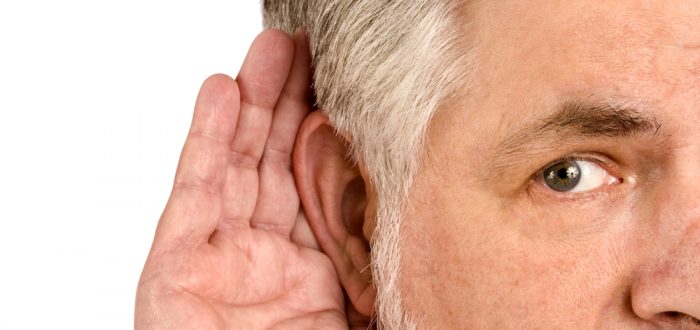An average of 1 in 3 adults in the United States aged between 65 – 74 experiences hearing loss. This figure increases for adults over 75. It’s easy to think that hearing loss is just something that naturally happens as we age.
Age-related hearing loss, known as presbycusis, is the most common form of hearing loss. However, hearing loss can affect people of any age. There are also multiple causes of hearing loss. Some of these causes include:
- Noise induced hearing loss (NIHL)
- Injury
- Ototoxic medication
- A blockage
Hearing loss can be broken down into three basic categories:
- Sensorineural
- Conductive
- Mixed
Understanding what type of hearing loss you have can help you make more informed decisions about treatment options with your hearing care provider.
What is Sensorineural Hearing Loss?
Sensorineural hearing loss (SNHL) is the most common form of hearing loss. It is the result of damage to your inner ear or your auditory nerve. SNHL is a permanent hearing loss, and in most cases medicine or surgery will not fix it. Your ability to hear may be improved with the use of hearing aids, or in some cases a cochlear device.
Some of the more common causes of sensorineural hearing loss include:
- The natural aging process (presbycusis)
- Exposure to loud noises (noise-induced hearing loss)
Less common causes of SNHL include:
- Viral infections such as mumps, meningitis, measles or scarlet fever.
- Injury
- Genetics
- Medication (ototoxic hearing loss)
What is Conductive Hearing Loss?
Hearing loss caused by an obstruction or blockage in your ear is referred to as conductive hearing loss. In many cases, conductive hearing loss is treatable.
Conductive hearing loss happens when problems with the eardrum, bones, muscles or ligaments in the middle ear prevent sounds from passing through to the inner ear. Blockages in the outer or middle ear slow down the vibrations of incoming sound, which results in hearing loss.
Conductive hearing loss can have a number of causes. Some of the top causes include:
- Ear Infections
- Colds & Allergies
- Earwax
- Physical Obstruction
What is Mixed Hearing Loss?
Someone with a mixed hearing loss has a combination of sensorineural and conductive hearing loss. This can happen if someone has a pre-existing hearing loss, such as age-related hearing loss, and then has an obstruction in their ear.
What’s the Difference Between Sensorineural & Conductive Hearing Loss?
The main differences between sensorineural and conductive hearing loss is the cause of the hearing loss, and the treatment options.
Sensorineural hearing loss treatment options may include:
- Hearing aids
- Cochlear implants
Conductive hearing loss treatment options may include:
- Treating the underlying infection
- Removing the obstruction
Do you suspect that your hearing is impaired? Early treatment can improve your quality of life. Find out if you should speak to a hearing healthcare specialist by completing this free hearing loss checklist.
Alternatively, feel free to book an appointment with the Anderson Audiology team today. Call us on 702-997-2964 to request your appointment. Alternatively, click here to request an appointment online.

